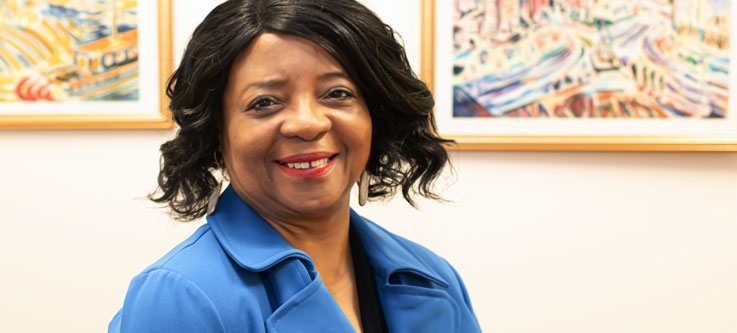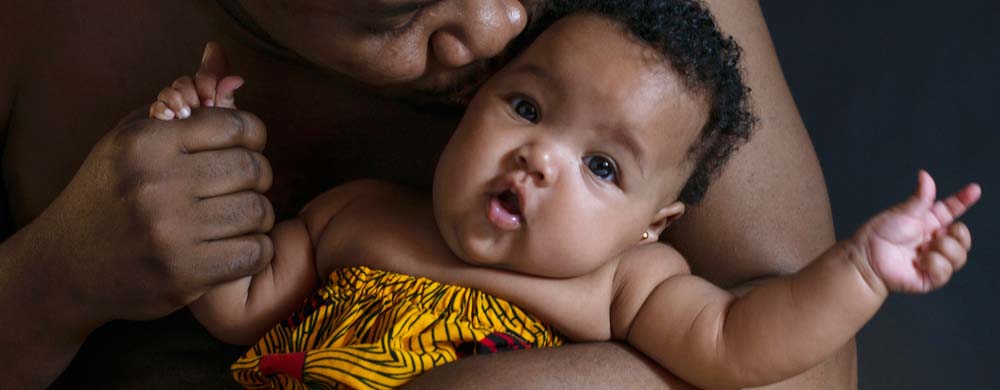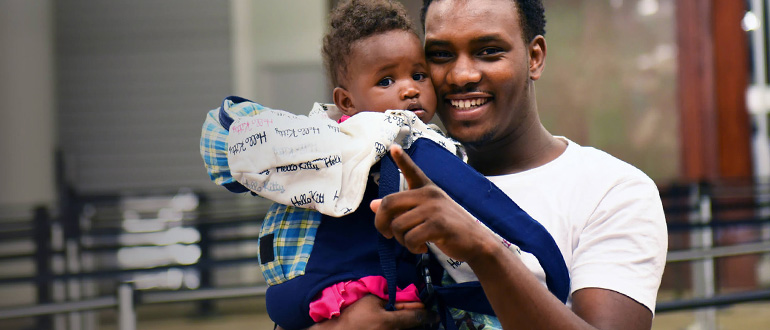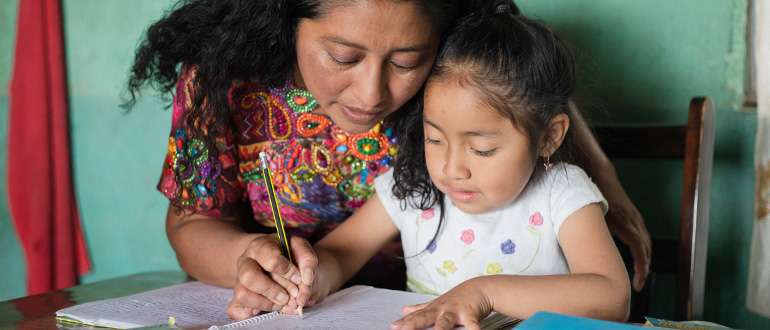Reine Kukwikila: How CHWs Help Immigrants Overcome Barriers

Reine Kukwikila came to the United States from the Democratic Republic of Congo. Her first job upon arriving was at the airport, where she washed dishes. Over time she has become a Community Health Worker (CHW) and supports people throughout southwest Ohio, many of whom are themselves immigrants. Kukwikila knows first-hand the challenges they face.
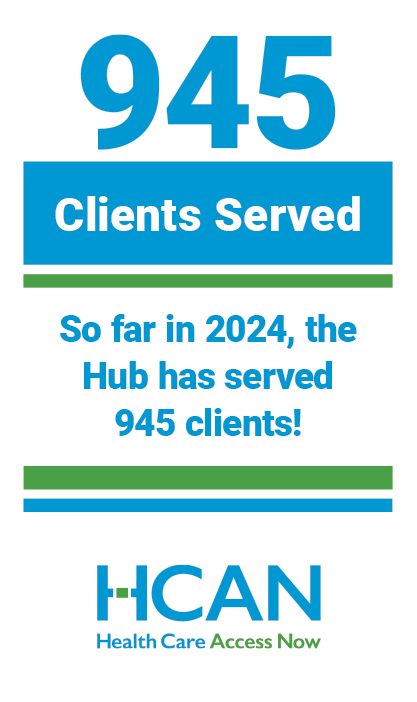
Her own path to becoming a CHW began when she was a clerk at a nutrition program for Women, Infants, and Children (WIC), where she worked to improve the diets of pregnant women, new mothers and young children. Kukwikila soon realized she had the desire to help these families with more, including finding dental care and proper translation at their medical appointments. “Someone told me, ‘You can actually become a community health worker, so you can give more assistance than being a clerk at the WIC office,’” she told HCAN.
After receiving training, Kukwikila began working as a CHW in Butler County. Today she is on staff at Ebenezer Healthcare Access. One of the most persistent challenges her clients face is the language barrier, she told HCAN. When calling to schedule medical appointments for themselves or family members, they are often put on hold and left to wait for long periods of time.
Once at the appointment, translation presents an additional problem. “I go to the hospital and they find me someone who speaks French, [but] that person speaks French from Canada,” Kukwikila told HCAN. “It’s not the same.” The patient might instead bring along someone they know and trust who has command of both languages. But often that person will not speak medical French and cannot translate properly, Kukwikila said. The resulting frustration can lead the person seeking medical attention to eventually just give up. This is where the CHW steps in. Kukwikila can let the provider know that her client needs a person who speaks French, yes, but specifically French as it’s spoken in West Africa “so the person feels comfortable and is getting the proper treatment,” she said.
Medicaid and other insurance plans often provide transportation to and from appointments as a benefit. Her clients appreciate having someone to remind them to request a vehicle. “As a CHW, I know you have an appointment coming up,” Kukwikila told HCAN. “I know you have Medicaid, but you don’t have transportation. I’ll set a reminder to remind the client.”
Kukwikila and other CHWs also offer support outside of medical settings. They help parents acquire the diapers, clothes and back-to-school supplies their children need. They identify English classes that can eventually help their clients find higher-paying and more secure jobs. When a client finds she’s been denied services she needs, a CHW can look over the paperwork and ensure the applicant has filled it out properly.
The goal is to link clients to the institutions that can meet their needs. “A community health worker is there to help make that connection easy,” Kukwikila said.

